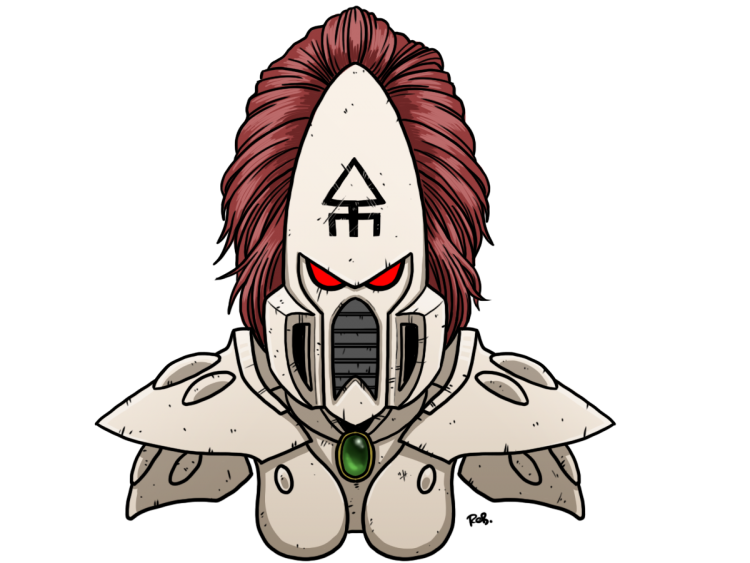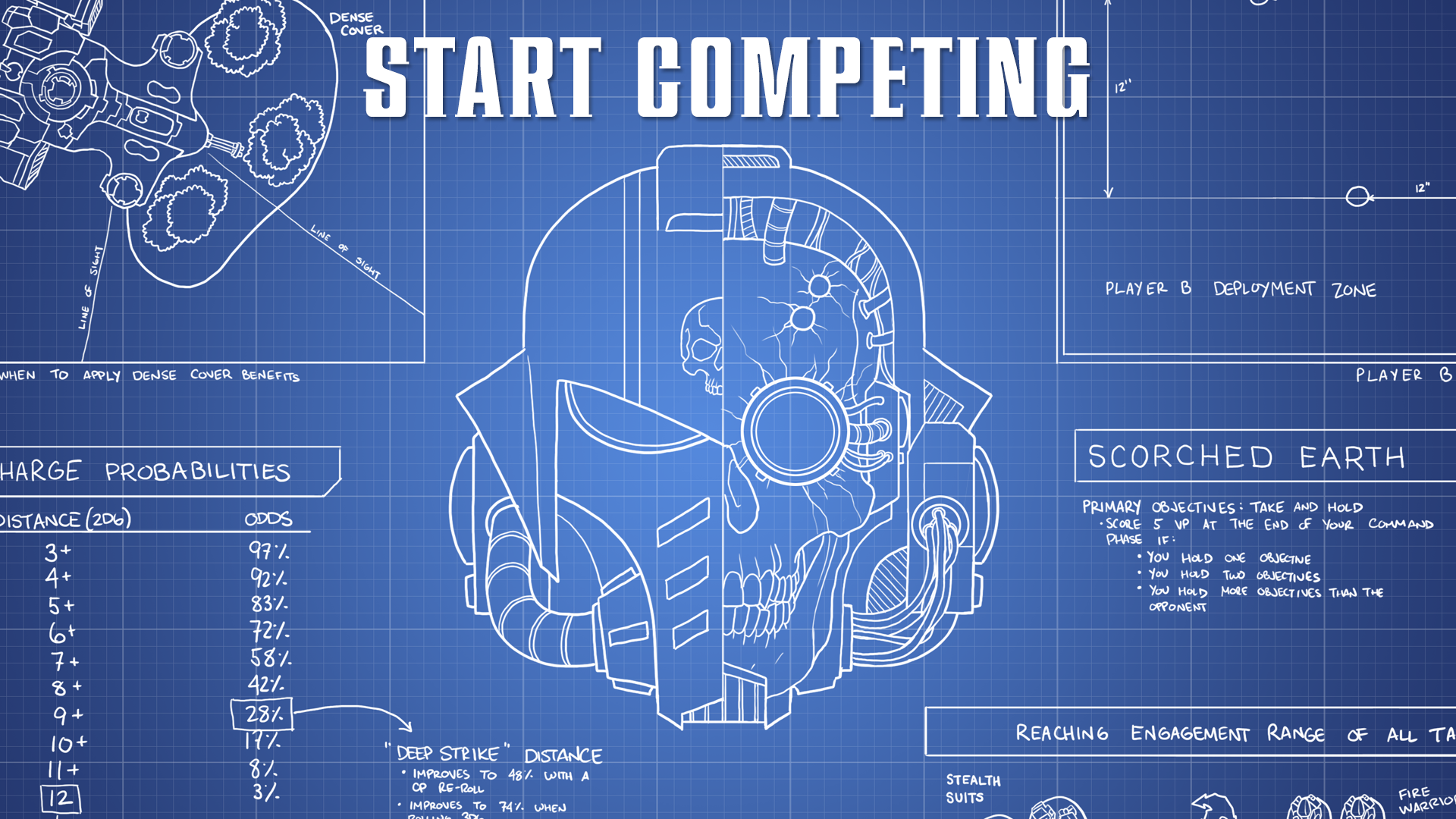For regular tournament-goers the phrase “playing by intent” is a commonly heard declaration – it signifies a friendly, stress-free game that alleviates some of the anticipated mental load by acknowledging that missed actions may have been intended and are thus allowed to continue out-of-sequence or out-of-phase. However, I’ve found at times that “playing by intent” has meant different things to different people and has on occasion led to misunderstandings or conflict, even between experienced players. So I’d like to offer the community my interpretation of what the phrase means (and it’s certainly up for debate whether this is the correct one), and further where the limits of information-sharing and intent can be reasonably, debatably be drawn when it comes to sporting play at the table.
Intent
Let’s start with the definition of the word. Merriam-Webster defines the adjective “intent” as:
- Directed with strained or eager attention
- Having the mind, attention, or will concentrated on something or some end or purpose
For our purposes, the latter is the more appropriate definition. Simply, intent is the thought to an object or outcome. It is definitionally not an action. As such, it is highly personal and without being vocalized or subsequently actioned, its truth is inherently unknowable by any outside observer and thus may only be surmised in context or communication. This means that when someone states that they are “playing by intent” they are, ideally, declaring that they are placing trust in you and asking for your trust in them and that their actions are honest and in good faith.
However, blind trust can be easily abused either intentionally in a minority case or by negligence in a majority case. I’ve written before about cheating, and while I maintain that systematic cheating in competitive wargames is not very common, lesser forms of fudging around the edges I think are much more common. When it comes to abuse of intent, what I have seen most often is a playstyle that assumes a capability and is then declared as the intent retrospectively, rather than proactively showing a capability and acting accordingly. A couple of examples of this that I have witnessed or experienced include:
- Placing a unit from reserve and declaring the intent to shoot all models in the squad at a target partially obscured by line-of-sight blocking terrain. The assumption here is that all models in the arriving unit can draw line of sight to at least one model in the target unit on arrival. However, the physical line of sight and screening requirements limits the arriving from reserve unit to an area that allows only one or two models to physically see the target.
- Heroically intervening into a combat after a player has nominated, piled-in, and begun to fight with their units. The situation is a common example of a more general understanding of playing by intent, however, the assumption here is that the heroic intervention was even possible prior to the pile-in, which by this point isn’t clear or knowable to be physically possible.
In both cases, the player seeking to make a claim to intent is taking their action based on an assumed physical interaction of the models on the table top. However, just like anything else with this game, for something to be intended it must also be physically possible. By design or by negligence, both examples are of an action that is not known to be physically possible but seeks a claim to intent to paper over the shortcoming. This creates a problem because there’s no way to determine if the plays are intentional or innocent, and it leads to stressful games where one player is put on a higher level of alert for shenanigan-ry. Trust is not built and the game no longer becomes stress-free. All that said, players should be encouraged to play by intent. This is a complex game and it’s easy to make mistakes where you fully intended an action, but it slipped the mind for any number of reasons. Maybe you skipped the psychic phase because you were thinking about your shooting phase’s target priority, or you forget to declare an action that awards VPs (looking at you ROD). It is in the best interest of both players to consider these in a manner that doesn’t rely on strict adherence to sequencing and instead work out a practical solution.

A Different Definition
In general, I think most players have a common definition in mind more akin to what I will propose here. However, it’s worth spelling it out and really considering it for a moment – if for no other reason than it gives us a position to align around as a community and then enables us to draw a contrast when actions at the table deviate from it.
Given the above, my definition of playing by intent includes three key pieces:
- It is mutually understood
- It is reciprocated
- Agreement that the underlying action is or was physically possible
The first part is straight forward – both players must understand that the game is being played by intent and understand what that means. For the second part, we’ll get into the idea of “take-backs” in a bit, but suffice to say, both players need to trust each other and give the same allowances from start to finish. If one player reneges on the understanding, then the game is not being played by intent and it’s possible one player has been unfairly disadvantaged. Without a clear understanding by both players, and without consistent reciprocation, you run into the issue where one player may ‘lower their guard’ so to speak or have a different understanding and then becomes caught out when they make a mistake but then are not allowed by their opponent to correct it. The sudden change in expectation can be disheartening but also lead to negative feelings towards the game and opponent. And who needs that?
The final part is where the nuance comes in. To play by intent does not mean that you play outside of the rules. Actions taken during the game still need to be physically possible, and just like any other game, should be in full view and understanding of your opponent. At the end of the day the purpose of the concept is to relax the mind – you still need to play the game and do all the little things right, but you’re not worried that a small mental blip among all the moving pieces will leave you hanging out to dry. The way you do this is by communicating with your opponent – state what you want or are doing, what you are considering. This opens the conversation for you and your opponent to consider the state of the board and come to an agreement or acknowledgement on the possibilities. So many of the problems with playing by intent are caused by a player not communicating and assuming possibilities where the validity, especially when it’s in retrospect, may not have been viable from your opponent’s perspective. And you’ll see this at the top tables – players will openly discuss what they’re thinking in the moment, their opponents may even weigh in with their thoughts and judgement on it. That is the sign of a healthy game and two players who trust and respect each other.
A couple of quick examples:
- If I have the Retrieve Octarius Data secondary, during my movement phase I will state that I intend to ‘ROD’ with a specific unit at the end of the phase. By doing so, my opponent can identify which unit I am referring to and confirm for themselves it’s viable (not the wrong quarter, within the boundary, etc). They also know that if I don’t specifically call it out at the correct step, that my intention was to do so.
- During movement, while measuring out ranges and making decisions, I will explain to my opponent what I am thinking and what I’d like the outcome to be. By doing so, they can independently verify any combination of ranges/charge ranges/lines of sight and we can then proceed moving models generally vs precision-moving each model which is time-consuming and tedious – we know where they are because we discussed it and confirmed it – all the following actions are then known and there’s no confusion in the moment.
This type of communication ensures that the game flows and ensures there’s not any attempt to deceive. However, there’s a much greyer area of playing by intent that involves the concept of “take-backs.” This commonly happens when communication has not occurred beforehand and one player identifies that they missed a key action after-the-fact. I think these misplays fall into two camps that I’ll dub “obvious misplay” and “tactical errors.”

An obvious misplay is something that any reasonable person would do but didn’t verbally declare it or missed the action. Examples of obvious misplays might be:
- Failing to declare a secondary action for a unit (think Retrieve Octarius Data)
- Lining up a shot or a charge and then skipping past the unit to get to an anticipated fight
- Failing to bring in reinforcements by turn 3’s movement phase
- Not moving a unit onto an objective that is otherwise in a position to do so, or conversely, walking off an objective for no advantage (I have done this and then a phase or two later wondered at my own stupidity – thanks Siegs)
The list goes on. The characteristics of an obvious misplay is that it tends to be binary (occurred or didn’t) and are a part of a logical chain that simply failed on the final link. In contrast to this, tactical errors are those that result in knowledge that would otherwise not have been known or that affect probability. These may include:
- Using a stratagem after a series of dice have been rolled that impacts the roll, or previous rolls
- Attempting to reposition one or more units after targeting a unit
- Noticing poor placement after a ‘trap’ has been sprung (think Forewarning, Auspex Scan, etc)
These types of misplays I don’t think there’s a right or wrong answer on – these are highly debatable and subject to an individual level of comfort. Some players will gladly re-roll dice while others will say it’s just too much, let’s move on. Both are completely valid, and I don’t think there’s a categorical value judgement to be made on this. Ultimately you and your opponent will need to work it out in a mutually agreeable fashion. However, just as with ‘cocked’ dice, the way these situations are resolved should be consistent throughout the game, and ideally, habitually across games. There just aren’t hard and fast rules and context of each situation will be important. For me personally, I tend to consider what is ‘fair’ to both players in a given scenario.
Some questions I ask myself are:
- Did I allow my opponent enough time or was I moving too quickly?
- Is there an unfair advantage or disadvantage gained by either player due to knowledge of a roll or outcome?
- What would a reasonable person have done in the situation?
- Do I trust my opponent?
If I find that the answers are consistent with a take-back, then it’s likely that I’ll allow it. Another question worth considering is, “How do I want to win this game?” In general, I don’t think there’s a right answer here and players will need to decide for themselves – but be consistent.
The ‘Gotcha’
The third example I gave of a tactical error, the sprung trap, is worth considering as it’s a uniquely complex mistake and opens to the question of, “What is fair to inform my opponent of, and more importantly, where’s the line?”. I don’t think we have a common definition of a ‘gotcha’ but I’d like to put forward one here:
- Gotcha: an in-game advantage derived from concealing information or deceiving your opponent about a capability or mechanic that is otherwise publicly available. An accusation of a ‘gotcha’ often carries a negative value judgement.
When we consider the earlier question of “How do I want to win this game?” it’s important to consider that your opponent is very likely not a walking encyclopedia of all the rules GW has released. Moreover, the rules are all publicly available, there’s no unique secrecy to any datasheet or mechanic. As a result, when walking up to a table, particularly in a tournament setting, you should proactively engage your opponent about your army. Ask them if they’re familiar and discuss with them before the game what the army is, what it does, what abilities it has – let them know. Allow them to ask any question they want and answer it openly and honestly before and throughout the game. Don’t hold back or be coy and if you forget something, mention it when you remember.
The key here is that both players are open and honest on their capabilities. That does not mean you are required to detail your plan ahead of time or are obligated from stopping your opponent from making a mistake. A ‘gotcha’ is an attempt to deceive your opponent by hiding information they’re privy to, but if your opponent has been made aware and commences to make a mistake anyway, you do not have a responsibility to stop them. Corrode: As an example here, let’s say that your opponent asks if any of your units can advance and charge, and none of them have a datasheet ability to do so but you DO have a stratagem which allows them to. You could choose to interpret the question literally and say “no,” since strictly none of your units have that ability, but most people would consider that a gotcha. On the other hand if your opponent asks and you answer honestly and they later forget and misplace a unit where you can reach it with an advance and charge, or if they never asked at all, then it might feel bad for them but it isn’t a gotcha – you aren’t required to play their game for them.
One final note on this: Players will generally evaluate several things when determining whether they provide their opponent with a take-back or give helpful advice that avoids a mistake. Opponent behavior, player skill gaps, the nature of the game and what has been established, and personal reasons are all valid in deciding whether to give a take-back.
Final Thoughts
It’s a complex game in a complex world and people have complex lives – we don’t need to make this harder on ourselves. In practice, playing by intent and the concept of take-backs are going to be highly personal between two players but a few principles of communication, consistency, and reciprocity go a long way towards building trust and ensuring a sporting and fair game. In the end we all want to win a tournament game, but win or lose, the game is ultimately at it’s best when you can be relaxed with your opponent and know you’re going to win or lose on your decisions and not a brief slip of the mind.
Have any questions or feedback? Drop us a note in the comments below or email us at contact@goonhammer.com.


